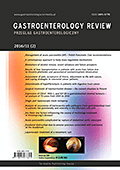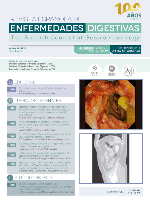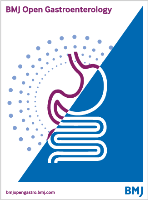
AMERICAN JOURNAL OF PHYSIOLOGY-GASTROINTESTINAL AND LIVER PHYSIOLOGY
Scope & Guideline
Pioneering Research for a Healthier Digestive System
Introduction
Aims and Scopes
- Gastrointestinal Physiology:
Research that explores the physiological mechanisms of the gastrointestinal tract, including motility, secretion, and absorption processes. This includes studies on the enteric nervous system, gut microbiome interactions, and the influence of hormones on gut function. - Liver Physiology and Pathophysiology:
Investigations into liver function, metabolism, and the pathophysiology of liver diseases such as nonalcoholic fatty liver disease (NAFLD), cirrhosis, and hepatitis, focusing on cellular and molecular mechanisms. - Neuroimmunophysiology:
Studies that examine the interactions between the nervous system, immune response, and gastrointestinal physiology, particularly in the context of gastrointestinal disorders and inflammation. - Translational Research:
Research that bridges basic science with clinical applications, aiming to translate findings from laboratory studies into therapeutic strategies for gastrointestinal and liver diseases. - Innovative Methodologies:
The journal encourages the use of advanced experimental techniques, such as imaging, modeling, and omics technologies, to study physiological and pathological processes in gastrointestinal and liver health.
Trending and Emerging
- Microbiome-Gut-Brain Axis:
Research focusing on the interactions between the gut microbiome and the central nervous system is gaining traction, highlighting the role of gut health in mental and neurological disorders. - Mechanisms of Inflammation and Immunity:
There is an increasing emphasis on understanding the immunological aspects of gastrointestinal diseases, particularly the role of inflammation in conditions like inflammatory bowel disease (IBD) and liver diseases. - Personalized Medicine and Biomarkers:
The trend towards personalized medicine is evident, with a growing number of studies aimed at identifying biomarkers for gastrointestinal and liver diseases to tailor therapies to individual patients. - Regenerative Medicine and Tissue Engineering:
Emerging research in regenerative medicine, particularly the use of stem cells and organoids for modeling diseases and developing novel therapeutic strategies, is becoming more prominent. - Advanced Imaging and Diagnostic Techniques:
Innovations in imaging and diagnostic methodologies, such as high-resolution manometry and machine learning applications in diagnostics, are increasingly highlighted in recent publications.
Declining or Waning
- Basic Mechanisms of Drug Action:
Research focused on the basic mechanisms of drug action in the gastrointestinal system has decreased, possibly due to a shift towards more complex interactions involving the microbiome and host physiology. - Traditional Dietary Interventions:
Studies investigating conventional dietary modifications as treatments for gastrointestinal disorders appear to be less frequent, suggesting a move towards more innovative and pharmacological approaches. - Invasive Surgical Techniques:
Research on invasive surgical techniques for treating gastrointestinal diseases has waned, likely as minimally invasive and endoscopic approaches gain favor and as the focus shifts towards non-invasive methods. - Animal Models of Disease:
While animal models remain crucial, there is a noticeable decline in studies solely relying on traditional animal models, as researchers increasingly utilize human organoids and other advanced in vitro techniques.
Similar Journals

Clinical Gastroenterology and Hepatology
Pioneering Research for Tomorrow's Gastroenterological SolutionsClinical Gastroenterology and Hepatology, published by Elsevier Science Inc, stands as a leading journal in the fields of gastroenterology and hepatology. With an ISSN of 1542-3565 and an E-ISSN of 1542-7714, this esteemed publication has earned its place in the top quartile (Q1) of both gastroenterology and hepatology categories as of 2023, ranking 6th out of 167 and 7th out of 82 respectively. The journal aims to disseminate innovative research, clinical studies, and case reports that advance the understanding and treatment of gastrointestinal and liver diseases. Targeted towards researchers, healthcare professionals, and students, it provides crucial insights into emerging therapies and medical advancements. Clinical Gastroenterology and Hepatology is not only a pivotal resource for contemporary gastroenterological research but also fosters collaboration and knowledge-sharing within the medical community. With a converging publication history from 2003 to the present, the journal continues to build on its solid foundation of scientific excellence and relevance.

EUROPEAN JOURNAL OF GASTROENTEROLOGY & HEPATOLOGY
Elevating standards in gastrointestinal and liver research.The EUROPEAN JOURNAL OF GASTROENTEROLOGY & HEPATOLOGY, published by LIPPINCOTT WILLIAMS & WILKINS, serves as a key platform for disseminating cutting-edge research in the fields of gastroenterology and hepatology since its inception in 1989. With its ISSN 0954-691X and E-ISSN 1473-5687, the journal has established a prominent reputation, as reflected in its 2023 rankings, placing it in Q2 for Gastroenterology and Q3 for Hepatology. It is ranked #75 out of 167 in gastroenterology and #39 out of 82 in hepatology according to Scopus, highlighting its importance in advancing knowledge and clinical practices. While it does not currently offer open access options, the journal remains essential for researchers, healthcare professionals, and students seeking to stay abreast of significant developments and innovations in digestive health. By providing rigorous peer-reviewed articles, the EUROPEAN JOURNAL OF GASTROENTEROLOGY & HEPATOLOGY continues to contribute to the understanding and treatment of gastrointestinal and liver diseases, making it a vital resource in the medical community.

Gastroenterology Review-Przeglad Gastroenterologiczny
Exploring the Frontiers of Digestive HealthGastroenterology Review-Przeglad Gastroenterologiczny is a premier, peer-reviewed journal published by TERMEDIA PUBLISHING HOUSE LTD, focusing on the dynamic field of gastroenterology. Since its inception in 2006, it has embraced an Open Access model, ensuring that the latest research is readily accessible to a global audience, fostering collaboration and innovation. Based in Poland, this journal serves as a crucial platform for disseminating significant findings in gastrointestinal research, with a current Scopus rank placing it at the 39th percentile in its category. With a commitment to advancing the understanding of gastroenterological conditions, *Gastroenterology Review* publishes original articles, reviews, and case studies that contribute to both clinical practice and academic research. The journal is particularly aimed at researchers, healthcare professionals, and students who ignite dialogues that shape the future of gastrointestinal health. Explore the comprehensive insights that this journal offers, as it encapsulates vital developments from 2008 to 2024 in the ever-evolving landscape of gastroenterology.

Frontline Gastroenterology
Pioneering Research for Liver and Gut HealthFrontline Gastroenterology is a leading academic journal published by the BMJ Publishing Group that plays a vital role in advancing the field of gastroenterology and hepatology. Established in 2013, this prestigious journal has established itself as a significant resource for researchers, healthcare professionals, and students alike, maintaining a commendable impact factor and consistently achieving a Q2 ranking in both gastroenterology and hepatology categories as of 2023. With its focus on disseminating high-quality, peer-reviewed research, Frontline Gastroenterology covers a wide scope of topics pertinent to the understanding, diagnosis, and treatment of gastrointestinal and liver diseases. Although it does not offer Open Access options, its content is accessible through various institutional and personal subscriptions, ensuring that critical findings reach an international audience. As the journal continues to converge into the future, it remains dedicated to fostering innovation and dialogue in gastroenterological sciences.

REVISTA ESPANOLA DE ENFERMEDADES DIGESTIVAS
Fostering collaboration in the field of digestive health.REVISTA ESPANOLA DE ENFERMEDADES DIGESTIVAS, a pivotal Open Access journal published by ARAN EDICIONES, S A, has been at the forefront of advancing the field of gastroenterology since its inception in 1990. With a robust commitment to disseminating high-quality research, the journal provides a platform for researchers, clinicians, and students to share innovative findings and insights concerning digestive diseases. The journal is characterized by its Q3 ranking in both Gastroenterology and Miscellaneous Medicine categories, indicative of its significant contributions to these fields, and is positioned within the 36th percentile of Scopus rankings for medicine related to gastroenterology. Based in Spain, REVISTA ESPANOLA DE ENFERMEDADES DIGESTIVAS has embraced the Open Access model since 2004, ensuring that its articles are readily available to a global audience without financial barriers. The journal not only supports academic discourse but also plays a crucial role in improving clinical practices and health outcomes related to digestive health.

Hepatology Communications
Driving discoveries in liver disease and treatment.Hepatology Communications, published by Lippincott Williams & Wilkins, serves as a pioneering platform in the field of hepatology, dedicated to advancing the understanding of liver diseases and treatments. Since its inception in 2017, this open access journal has rapidly gained recognition, achieving an impressive Q1 ranking in Hepatology as of 2023, and appealing to a diverse audience of researchers, clinicians, and students alike. With its focus on high-quality research and clinical studies, the journal aims to facilitate impactful discussions and disseminate vital findings that address the challenges faced in liver health. Operating out of the United States, and accessible globally, Hepatology Communications is committed to fostering a collaborative research environment and enhancing the visibility of scholarly work in hepatology, ultimately driving forward innovations in patient care and treatment strategies.

Gastroenterology
Advancing Digestive Health Through Premier ResearchGastroenterology, published by W B Saunders Co-Elsevier Inc, is a premier journal dedicated to advancing the knowledge and practice within the fields of gastroenterology and hepatology. Established in 1945 and covering a wide range of topics related to digestive health, this journal holds a distinguished position in the academic community, as evidenced by its impressive Q1 status in both Gastroenterology and Hepatology categories, and its high rankings (4th in both disciplines) in Scopus, placing it in the top percentile for scholarly impact. With its commitment to publishing high-quality research, reviews, and clinical studies, Gastroenterology provides an essential resource for researchers, healthcare professionals, and students seeking cutting-edge insights that inform clinical practices and enhance patient care. Although it does not currently offer open access, the journal continues to serve as a vital platform for disseminating meaningful research that shapes the future of digestive disease management.

Cellular and Molecular Gastroenterology and Hepatology
Exploring breakthroughs in cellular and molecular research.Cellular and Molecular Gastroenterology and Hepatology, published by Elsevier Inc, is a premier Open Access journal dedicated to advancing the understanding and treatment of gastrointestinal and liver diseases. Since its inception in 2015, this journal has established itself as a leading publication within its field, boasting impressive metrics with a 2023 Q1 ranking in both Gastroenterology and Hepatology. It ranks #10 out of 167 in Gastroenterology and #11 out of 82 in Hepatology on Scopus, placing it in the 94th and 87th percentiles, respectively. This journal aims to disseminate high-quality, peer-reviewed research that fosters innovative solutions for clinical challenges, making it an invaluable resource for researchers, healthcare professionals, and students alike. With open access, all published content is readily available to a global audience, ensuring that critical findings in cellular and molecular biology related to gastroenterology and hepatology reach those who can benefit the most from the latest advances in the field. For more information, please visit us at our address in San Diego, CA, or explore our articles online.

BMJ Open Gastroenterology
Advancing Gastroenterology Through Open Access ResearchBMJ Open Gastroenterology is a premier open access journal published by the esteemed BMJ Publishing Group, focusing on the dynamic and evolving field of gastroenterology. Established in 2014, the journal has rapidly ascended in stature, reflected in its impressive 2023 Q1 ranking in gastroenterology and its position within the top 25% of journals in the category according to Scopus. With a mission to disseminate high-quality, peer-reviewed research with global significance, the journal provides a vital platform for researchers, professionals, and students alike to share their findings and advancements in gastrointestinal medicine. Operating from its headquarters in London, England, the journal's open access format ensures wide visibility and accessibility of cutting-edge research, making it an invaluable resource for those dedicated to improving patient care and driving innovation in gastroenterological sciences. By engaging with this journal, contributors and readers can stay at the forefront of critical developments in the field, fostering a collaborative environment for knowledge exchange.

WORLD JOURNAL OF GASTROENTEROLOGY
Pioneering discoveries for better digestive health.WORLD JOURNAL OF GASTROENTEROLOGY, published by BAISHIDENG PUBLISHING GROUP INC, stands at the forefront of gastrointestinal research, providing a critical platform for the dissemination of high-quality studies in the field. With an impressive impact factor reflected in its Q1 rankings in both Gastroenterology and Miscellaneous Medicine, this journal is recognized for its rigorous peer-review process and commitment to advancing knowledge and practices related to digestive health. Covering comprehensive scopes from clinical advancements to innovative therapies, the journal serves an essential role for researchers, clinicians, and students, enabling them to stay updated on the latest developments and findings from 1998 through 2024. The open access model facilitates broader accessibility, ensuring that groundbreaking research reaches a global audience. The journal's ranking within the top 15% of Scopus demonstrates its significant contribution to the academic community, making it a valuable resource for advancing the science of gastroenterology.